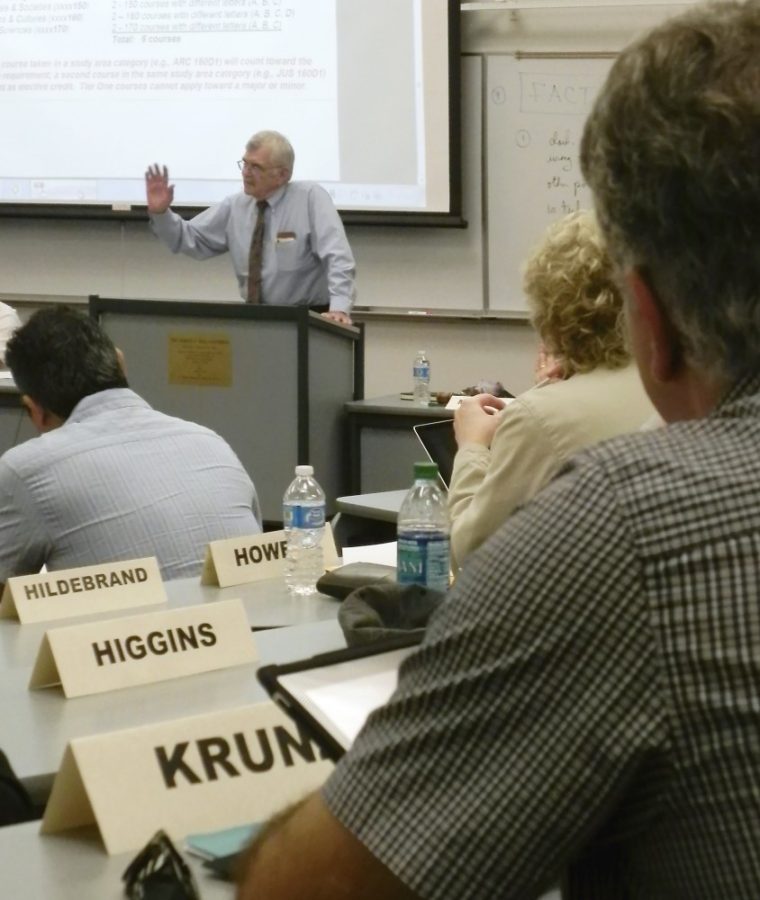The Arizona Board of Regents has selected Greenwood/Asher and Associates, Inc. to serve as the consulting firm throughout the search for a long-term UA president.
Greenwood/Asher specializes in academic searches, particularly for university presidents. Jan Greenwood will serve as the principal search consultant according to Katie Paquet, the associate vice president for public affairs and external relations for the regents.
Greenwood could not be reached as of press time.
Greenwood/Asher, which is headquartered in Miramar Beach, Fla., has been involved in a number of recent presidential searches, including those at Washington State University, George Mason University and James Madison University.
During a meeting of the UA Faculty Senate on Monday Regent Rick Myers, one of the co-chairs of the Presidential Search Committee, said Greenwood/Asher was one of the four firms to be interviewed out of the total of 14 that were considered.
“The position we are trying to fill will well affect how the university moves forward,” Myers said. “We need someone to focus on academics, research and athletics but (who) also has the leadership qualities and personalities to leverage the UA’s ideas.”
Wanda Howell, the chair of the Faculty Senate, said it is important to develop key candidates for the position by December or January and for an official hire to be made by March. But Howell said the potential candidate pool is much smaller than it normally would be, since so many major universities are searching for presidents.
Howell also said the UA is accepting applications for the position and has received a few already.
Current UA President Eugene Sander said making the UA attractive to potential candidates was not an issue and that it is important for a potential new president to inspire confidence.
“When a leader walks through that door, you need to just know that it’s your new president,” he said. “It’s as simple as that. You need someone as excited about his promotion as you were yours. You need someone that feels comfortable doing what they need to do.”
Both Student Regent William Holmes and Associated Students of the University of Arizona President James Allen said it is vital for students to continue to have a voice throughout the search process, and Allen stressed the importance of finding a candidate who will emphasize affordability for students.
“Students can’t just be looked at as cash cows,” he said.
John C. Ulreich, an English professor, said it was important to find a candidate who will inject energy into the university.
“We need a visionary, someone to inspire us,” he said.
Myers said that, while it is unlikely that the “perfect candidate” would arise, the UA needs somebody with the wisdom to complement working with others.
“That’s the quality of a leader,” he explained.
The Faculty Senate also unanimously approved changes to tier one general education courses in an attempt to avoid erroneous credit duplication. In the past, students who took two courses of the same area and number, such as two 101-numbered Individuals and Societies courses, could end up not having the course count toward fulfillment of their Gen ed requirements.
The senate also received an update from Sally Rider, the associate dean of the James E. Rogers College of Law and co-director of the National Institute for Civil Discourse, about the institute’s progress since it was started last February. Rider said the focus of the institute continues to be empirical research into how to approach problems or debates in a way that moves them closer to resolution.
— Eliza Molk contributed reporting to this story.









